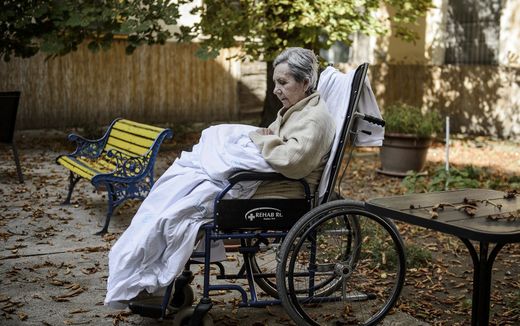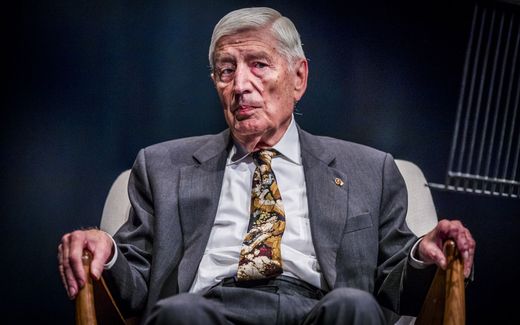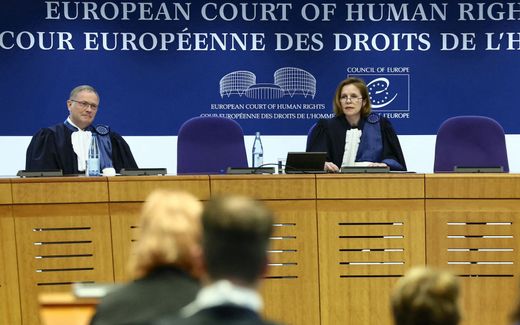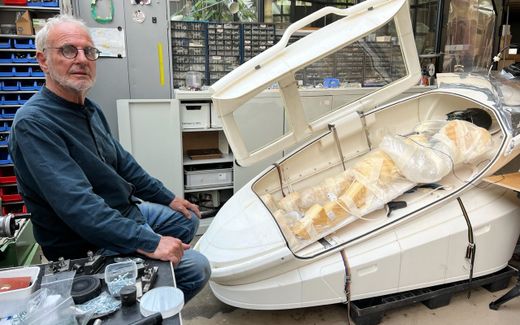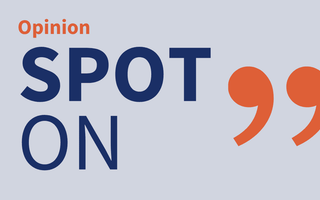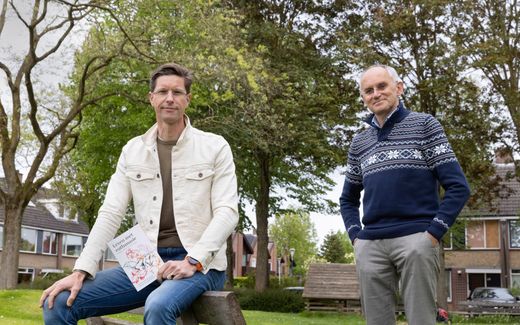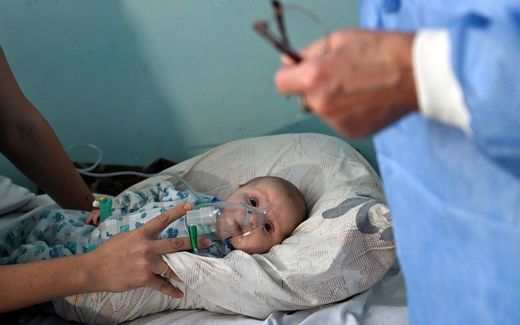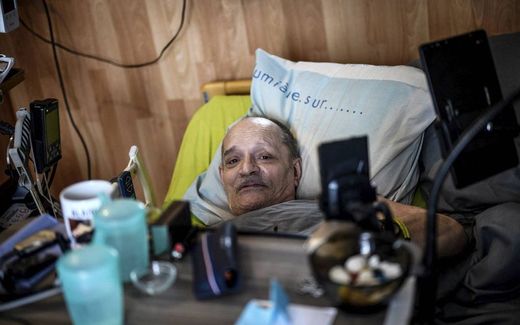Let’s not give up our care for the sick by getting to euthanasia
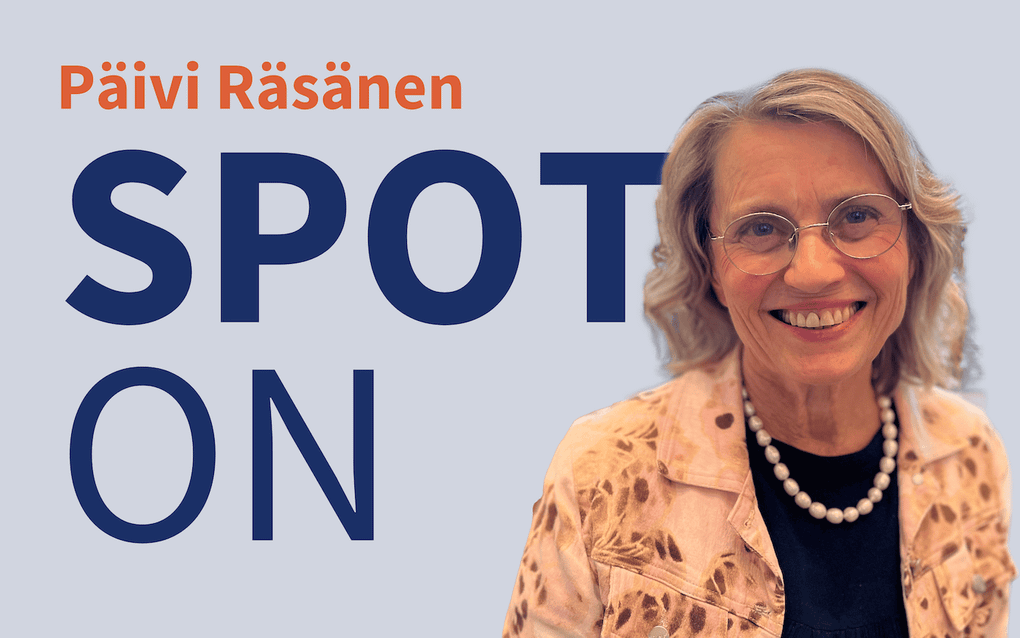
Photo CNE.news
Opinion
As a young doctor, Päivi Räsänen learned that a bed-ridden person has a critical task in society: to train us in neighbourly love. Human care is the answer to a death wish. Now, as a politician in Finland, she faces a debate about the legalisation of euthanasia.
Stay up to date with Christian news in Europe? Sign up for CNE's newsletter.
This spring, the Finnish parliament will decide on a citizens’ initiative proposing the legalisation of euthanasia. In the Social and Health Committee, we are thoroughly consulting experts on the subject, both for and against.
The Finnish Medical Association took a clear stand against euthanasia in May of last year. However, in opinion polls, most citizens supported this self-determined death. This opposite stance causes political pressure.
In addition, the majority of MPs announced before the parliamentary elections that they support the legalisation of euthanasia.
The last time the same topic was discussed was in 2018. Then, the parliament rejected a comparable citizens’ initiative by 128 to 60 votes. I still consider this a miracle because, at that time, the majority of MPs had previously been in favour of euthanasia as well.
Finnish Christians prayed en masse for the decision-making and presented their views to the MPs. Experts in palliative care and hospice care also set out their views before the parliament, saying that euthanasia is not necessary and that it would be harmful to patients and the ethics of healthcare.
Pain relief
Requests for euthanasia are often based on misconceptions. Euthanasia does not mean giving up useless treatments and is not a form of intense pain relief. Any medicine you take is intended to heal a person, not to kill someone. Euthanasia, on the other hand, poisons the patient with a substance injected into a vein. Euthanasia, therefore, is not a medical procedure but a crime which, under certain conditions, goes unpunished in countries that have legalised it.
Doctors in Finland have asked why the task of applying euthanasia is assigned to their particular profession specifically. The same lethal substances are used in executions in which healthcare professionals do not participate for ethical reasons. So why should they be the ones forced to use the poison in a different setting? Killing is not difficult and does not require medical training.
Legalising euthanasia would severely alter the healthcare culture
Legalising euthanasia would severely alter the healthcare culture and a doctor’s job description. Doctors have received scientific training to protect life, not to kill.
Undermining the principle of honouring human life is extremely problematic for doctors. If the principle of destroying life were to be accepted as one of the treatment options for incurable diseases, this could change the attitude of physicians. This could go so far that they could recommend options that do not sustain a patient’s life.
The term “right to die” is misleading and self-contradictory. International human rights agreements recognise a person’s right to live, not the right to die. Euthanasia cannot be derived from any human rights proclamation.
On the contrary, documents and regulations concerning human rights urge governments to protect life. The International Declaration of Human Rights states: “Everyone has the right to life, liberty and security of person” (1948, Article 3). The International Covenant on Civil and Political Rights states: “Every human being has the inherent right to life. This right shall be protected by law. No one shall be arbitrarily deprived of his life.”
Disabled
The UN treaties contain strong protection for the sick, disabled and old people, precisely those people who are most closely affected by euthanasia or assisted suicide. Interpretation of the treaties has not once resulted in support for euthanasia.
The value of the gift of life often becomes clear only when serious illness or death is looming. As a young doctor, I worked at the cancer clinic. There, I learned how patients whose prognosis was poor and who had to face the limitations of their lives knew how to value life. They talked about how every day they received was meaningful to them after they got sick.
On the other hand, a patient may also feel like he is a burden or useless because of his illness. Therefore, every death wish includes the question: “Does anyone care about me? Am I already completely irrelevant?” Such a question should not be answered by death but with human care and high-quality hospice care.
Suicide
In addition, death should not only be considered an individual choice. It has a tremendous social significance. Suicide affects the lives of dozens, even hundreds of people.
The same applies to euthanasia, which is defended by the argument that a person should have the right to decide his own moment of death. Suppose the right to self-determination is considered a justification for euthanasia; why are there so many campaigns against suicides?
Hospice care is more advanced than ever before in history. Pain and anxiety can be effectively controlled, and suffering patients can be sedated if necessary and lulled to sleep, from which they can also be woken up.
In good hospice care, the views of loved ones are also considered. My father died after suffering from Alzheimer’s disease for several years. Were the last years of his life useless suffering? I think that he was as valuable a person in his illness just as much as he was in his years of strength. Who knows how many meaningful and happy moments he lived locked in his memories?
Boundary
Discussion about euthanasia raises major and timeless questions about death, the value of life and human rights. Death itself is a boundary that we are not able to evaluate.
The calls for euthanasia are, in part, the result of the shift in worldview that takes place right now. The culture of death is linked to the change in the view of humanity. Our age has lost its perception of human life’s sanctity and extraordinary value.
Campaigns and organisations promoting euthanasia advance the achievement of their goals by creating new terms or by using euphemisms. To blur the reality of killing, they use beautiful sounding expressions, such as death assistance, good death, assisted death or dignified death. The citizens’ initiative brought before parliament proposes legal euthanasia “for a good death”.
What is a good death? That actually means life
What is a good death? When we speak of a good death, we actually mean life. Life before death, right up to the final seconds, can be good or bad, but death itself is a boundary that we are not able to evaluate. A dignified death points to good, high-quality care as death approaches, but killing a person is not a dignified action.
Termination
Legislation that permits abortions has already cleared the way for euthanasia. Once the termination of human life has been accepted at the beginning of life, extending this to the final stages seems sadly logical.
As a student in the medical faculty, I spent a moment with a paralysed old lady. I will never forget it. She told me of a meaningful discussion with a doctor many years before. After she became bed-ridden, she was depressed and had complained: “What use are we feeble old people to anyone? We should die.” The doctor replied: “You are performing the most important task for society. You are teaching us what it is to love our neighbour.”
I got the message. By their helplessness, the people who are most dependent on others lead to values in society that ultimately are key factors in our success. A society that is built upon love for our neighbour, respect for human dignity and mutual care will survive even during hard times.
Life as a gift
The Christian view of humanity has been key in creating the concept that stresses human dignity. A person’s life is sacred and should be inviolable since God created human beings in His image. Life is a gift.
Only God, the Giver of life, has the right to take away this gift. The commandment “thou shalt not kill” also applies to doctors, protecting the value of every person created in God’s image.
The good news is that God did not stand aside coldly to watch the destruction of suffering mankind but became man, one of us. Jesus, the Son of God who became a man, answers mankind’s eternal question about the reality of suffering and death.
We can trust in Him when we are threatened by fears, distress, sickness, and even death. The Book of Psalms says, “Our God is a God of salvation, and to God, the Lord, belong deliverances from death” (Psalm 68:20).
Päivi Räsänen is a Member of the Parliament of Finland and was trained as a medical doctor.
Related Articles


